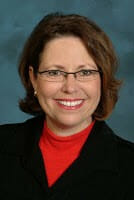Become an Effective Change Agent: The Moment is Now!
 by Jill Friedman Fixler, NCVS Speaker
by Jill Friedman Fixler, NCVS Speaker
As I prepare to serve as faculty at the Summit on Advanced Volunteer Engagement (SAVE) at the National Conference for Volunteerism and Service, as well as work with our clients and colleagues, I have been exploring the opportunity for volunteer engagement professionals to lead change.
Volunteer coordinators and directors are uniquely positioned to leverage the skills, talents, and passions of volunteers on behalf of the organization.
With volunteerism on the rise and service shining brightly in the national spotlight, you as a volunteer engagement professional are sitting on a veritable gold mine of human capital.
You are uniquely positioned to become a leader of organizational innovation.
You can do so by strategically harnessing volunteer skills, by becoming a talent manager, by being a change agent.
Change agents are those who lead, inspire, and catalyze change.
As you contemplate your potential as a change agent, consider these questions.
1. Do you see opportunities others don’t see? For example, do you see how volunteers can play integral roles in organizational innovation – as leaders? Project managers? Pro bono consultants? How can you share those strategies with others in the organization?
2. Are you willing to look beyond the “tried and true” to find new solutions to emerging challenges? Effective change agents not only are able to let go of “old ways” but also see multiple solutions and possibilities to address challenges. How can volunteers and the many talents they possess be the solutions to some of the challenges your organization is facing now and in the future?
3. Are you getting the best contributions from the most people? As Bill Taylor wrote in Harvard Business Review:
These days, the most powerful contributions come from the most unexpected places – the ‘hidden genius’ inside your company, the ‘collective genius’ of [clients, partners, and volunteers]…. Tapping the genius requires a new leadership mindset – enough ambition to address tough problems, enough humility to know you don’t have all the answers.
You can model a new leadership mindset by tapping the genius of the volunteer corps and leveraging that talent to build your organization’s capacity and make innovation a sustainable part of its culture.
4. What do you need to be an effective change agent/leader within your organization? Do you have the competencies to be effective in this role – including things like team-building abilities, networking skills, tolerance of ambiguity, political awareness, communication and interpersonal skills? And, if you don’t, what can you invest to gain or improve on some of these skills?
Once you have assessed your own potential and role as a change agent, your next steps include:
1. Pick the right place to intervene – pick something important, something in the core business not just something “around the edges”.
Select a place to intervene and innovate in ways that will make a substantive difference. Consider the big picture and ensure that you are working to strengthen to organization as a whole.
For example, at one of our hospital clients, staff and volunteers are collaborating to develop a concierge program that will serve patients, their families, staff, and volunteers.
This program will fundamentally change the way constituents experience the hospital.
2. Mobilize and engage volunteers in the effort.
Engaging volunteers in the effort is crucial because it leverages your resources most efficiently, it models the power and potential of volunteer engagement, and it builds support and advocacy within the larger community.
Many of our clients develop innovation teams comprised of staff and volunteers working together to address core issues in the organization.
3. Focus on results. Defining the immediate impact and the long term outcome of the endeavor draws people to this new work.
When I was a volunteer director, I put together an internal marketing team of volunteers who were professionals in public relations and marketing.
They developed an annual report on the results of volunteer engagement and created presentations for volunteer leaders, staff leaders, and the board of directors.
4. Be the model for change.
If we as volunteer engagement professionals don’t model the change that we are seeking by using high-impact, skilled volunteers, we will not inspire others to mobilize.
We observe our clients utilizing volunteers as interviewers, mentors to new volunteers, and evaluators of volunteer impact.
Think about the ways in which you can utilize volunteer talent within your volunteer organization in new ways and then jump in and get started in your new own new role as talent manager…. The moment is now to act!
Jill Friedman Fixler is a nationally known leader recognized for her innovative approaches to re-inventing, re-engineering, and re-vitalizing nonprofit and public sector organizations. Don’t miss her session at the NCVS Conference in June!
